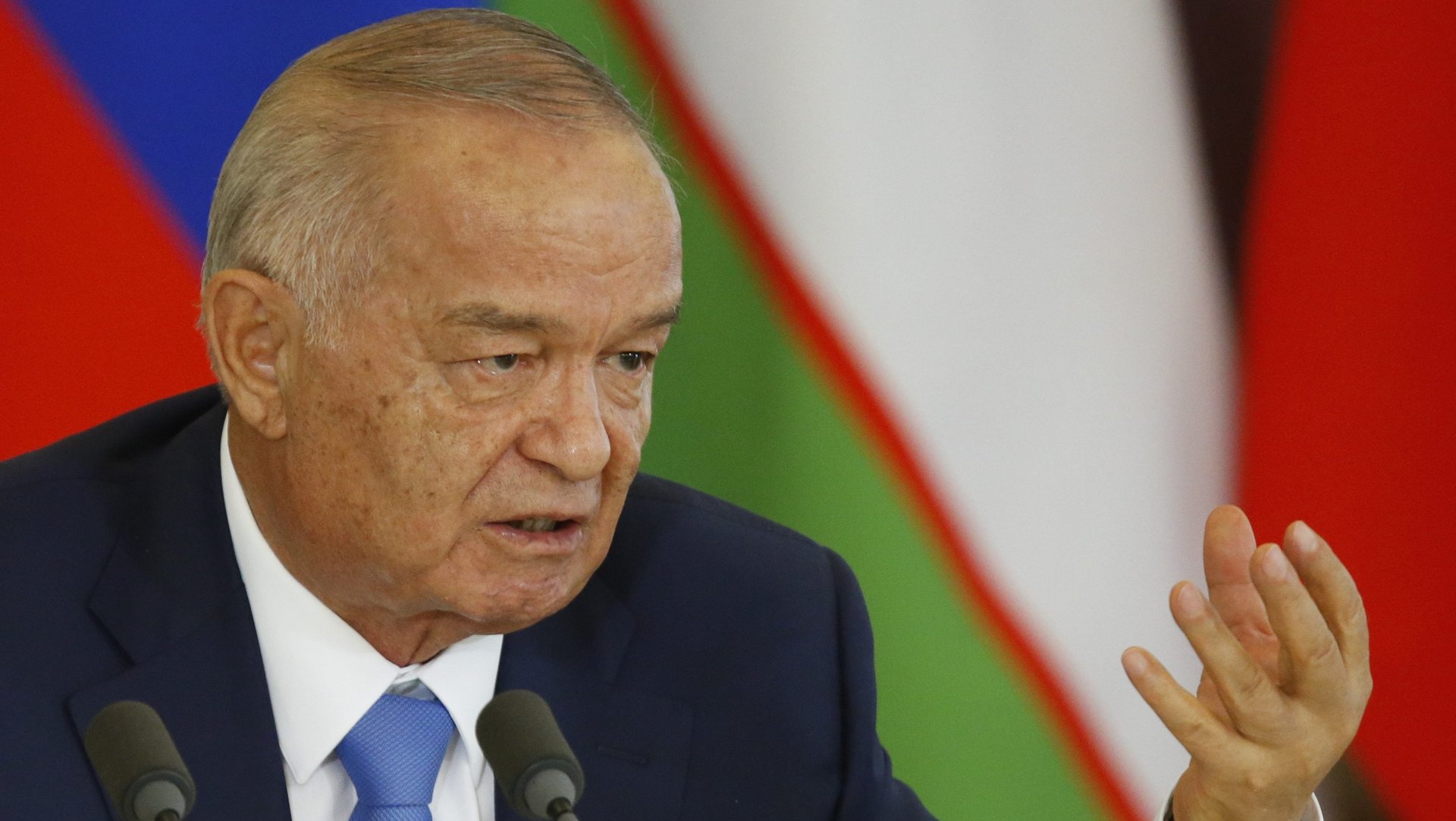Why it took nearly a week to confirm the president of Uzbekistan’s death
One might think clarity is important when announcing the death of your country’s president. Especially if your country is the largest in a powder-keg-like region. But in Uzbekistan—ranked 166 out of 180 in Reporters Without Borders’ press freedom index—things are…different.


One might think clarity is important when announcing the death of your country’s president. Especially if your country is the largest in a powder-keg-like region. But in Uzbekistan—ranked 166 out of 180 in Reporters Without Borders’ press freedom index—things are…different.
President Islam Karimov, who had been in power for 27 years, was (officially, definitively) confirmed dead on Sept. 2, almost a week after his daughter revealed on Instagram that he had suffered a brain hemorrhage.
As announcements go, deaths are surely the most clear-cut, and yet nothing highlights the Uzbek government’s haphazard approach better than a series of tweets from a Telegraph Moscow correspondent.
Leading Russian news agency Interfax also felt some whiplash. According to a screenshot posted by the BBC’s Moscow correspondent, Interfax tweeted a measured announcement of Karimov’s death, and then two minutes later walked it back with “He’s not dead!” Nineteen minutes after that, they re-upped to the original story.
Even international leaders had a tricky time negotiating things:
Though the announcements had the ring of Monty Python’s dead parrot sketch, the confusion epitomizes more sobering aspects of Karimov’s reign.
Uzbekistan is one of the world’s most brutal dictatorships: During his tenure, Karimov was accused of boiling and freezing his opponents to death. In 2005, in the city of Andijan, he was responsible for what could be one of the most violent state-sanctioned massacres since Tiananmen Square.
That’s “could be” because we may never know exactly how many died in Andijan, where peaceful protesters were mowed down by government forces. Foreign media pegged casualties at anywhere from “over 700” to “possibly thousands,” while the Uzbek government said 187 people were killed. Hundreds of protesters were sentenced to decades in prison over what the government described as an attempted coup.
Since Andijan, the government has turned its grip on information into a stranglehold. Human Rights Watch was expelled from Uzbekistan in 2011, and the current level of state secrecy basically prohibits foreign media from working in the country.
For reporters, that means all information—even major, power-structure-changing information—is essentially a gift the regime must bestow upon them. It’s a setup that makes said regime impossible to hold to account.